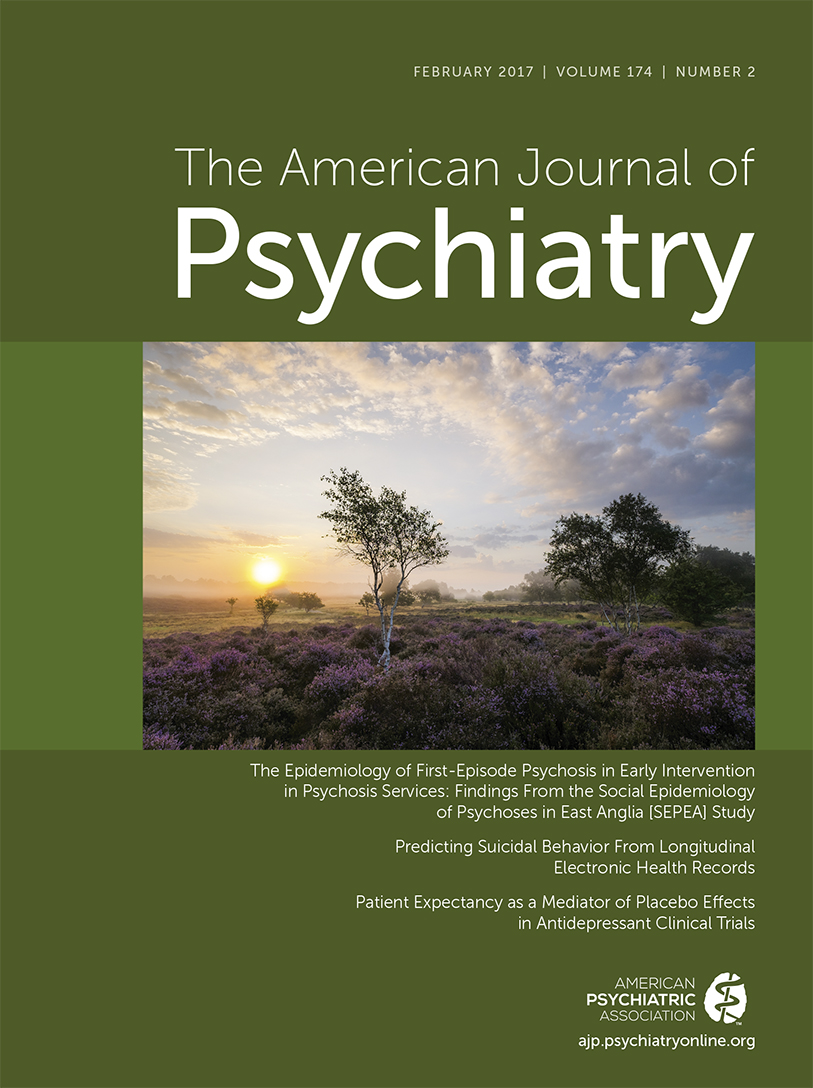Trichotillomania and Bipolar Disorder
To the Editor: We read with interest the article by Grant and Chamberlain (1), published in the September 2016 issue of the Journal, on the assessment and treatment of trichotillomania. As the authors point out, psychiatric comorbidity is the rule rather than the exception in patients with trichotillomania. In one study (2), approximately 55% of patients with trichotillomania met DSM-III-R criteria for a lifetime diagnosis of a mood disorder, including bipolar disorder in a small number of patients. While major depressive disorder is the most common mood disorder, the relationship between trichotillomania and bipolar disorder remains unclear (3).
Over the past few years, we have successfully treated several women at our perinatal psychiatric clinic who were comorbid for bipolar II disorder and trichotillomania (4). Interestingly, all of our patients (N=5) had experienced exacerbation of symptoms of trichotillomania immediately after giving birth. All patients failed to respond to trials of selective serotonin reuptake inhibitors (SSRIs), and two patients failed to respond to olanzapine. However, there was a robust and sustained response to lithium (in three patients) or lamotrigine (in two patients) monotherapy.
Studies have shown a correlation between changes in reproductive physiology and the onset or exacerbation of symptoms of trichotillomania in humans and hair plucking behavior (barbering) in mice (S. Husk, 2010 master’s thesis). Childbirth is also a well-recognized trigger of onset or exacerbation of bipolar disorder.
As the authors point out, SSRIs are not generally effective in trichotillomania. Moreover, the use of these drugs in patients with bipolar disorder may lead to further mood instability. Available literature, although limited to anecdotal reports, suggests that antidepressants should be avoided in favor of mood stabilizers for management of trichotillomania and bipolar disorder comorbidity.
1 : Trichotillomania. Am J Psychiatry 2016; 173:868–874Link, Google Scholar
2 : Characteristics of 60 adult chronic hair pullers. Am J Psychiatry 1991; 148:365–370Link, Google Scholar
3 : Impulse control disorder comorbidity among patients with bipolar I disorder. Compr Psychiatry 2011; 52:378–385Crossref, Medline, Google Scholar
4 : Lithium treatment of trichotillomania with comorbid bipolar II disorder. Arch Women Ment Health 2008; 11:305–306Crossref, Medline, Google Scholar



